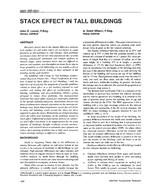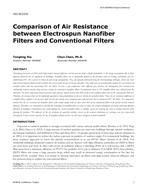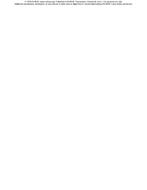Hospitals use special ventilation (SPV) rooms to protect patients and employees from airborne infectious diseases. The room airtightness determines the effectiveness of the ventilation system at containing airborne infectious diseases. In this research, we tested SPV rooms utilizing duct pressurization equipment to determine room leakage area. The leakage testing procedure involves depressurizing the room using a fan to exhaust air out of the room at varying rates while measuring the differential pressure between the room and the adjacent corridor. Ten SPV rooms were tested and found to have significantly varying leakage areas. For airtight energy-efficient homes, the recommendation is an equivalent leakage area (EqLA) of 2.5 in2 per 100 ft2 of building envelope surface area (Lstiburek 2004). This study describes a method for testing room leakage area, suggests a method to trace and seal leakage sites, and makes recommendations for an airtightness standard that is achievable based on the airtightness measurements presented in this paper.
Units: I-P
Citation: ASHRAE Transactions, vol. 114, pt. 2, Salt Lake City 2008
Product Details
- Published:
- 2008
- Number of Pages:
- 6
- File Size:
- 1 file , 900 KB
- Product Code(s):
- D-SL-08-044


